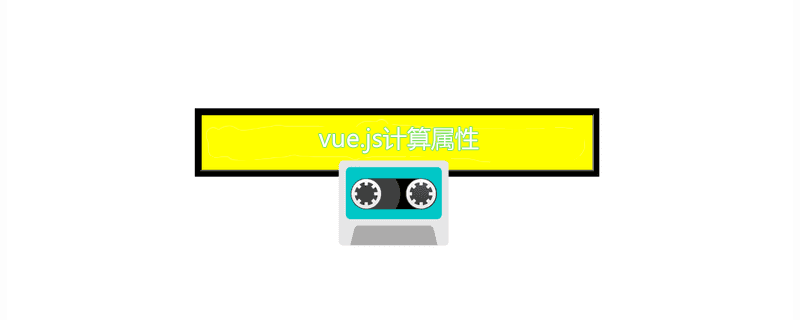
在本篇文章中,我们将通过具体的示例给大家介绍Vue中的计算(Computed )属性。

什么是计算属性(Computed )?
计算属性看起来就像Vue中的数据(data)属性,但是我们可以执行一些算术和非算术任务。
<template>
<ul>
<li>First name : {{firstName}}</li>
<li>Last name : {{lastName}}</li>
<li>Full name : {{firstName + ' '+ lastName}}</li>
</ul>
</template>
<script>
data:function(){
return{
firstName: "Sai",
lastName: "Gowtham"
}
}
</script>在上面的代码中,我们创建了两个数据属性firstName和lastName,并将其插入到template中。
如果你查看我们的template,我们在{{}}花括号中添加了Full Name逻辑。
例子
如何创建第一个计算属性的示例。
计算属性在计算属性对象中声明。
<template>
<ul>
<li>First name : {{firstName}}</li>
<li>Last name : {{lastName}}</li>
<!-- 计算属性 -->
<li>Full name : {{fullName}}</li>
</ul>
</template>
<script>
export default{
data:function(){
return{
firstName: "Sai",
lastName: "Gowtham"
}
},
computed:{
fullName:function(){
return this.firstName+' '+this.lastName
}
}
}这里我们添加了一个名为fullName的计算属性,它是一个函数,返回用户的全名。
我们可以像使用数据属性一样在template中使用计算属性。
计算属性由vue缓存,因此它只在底层数据属性更改时重新评估逻辑,这意味着如果firstName或lastName没有更改,那么它只返回先前计算的结果,而不再次运行函数。
相关推荐:《javascript教程》
Atas ialah kandungan terperinci vue.js计算属性是什么?(代码示例). Untuk maklumat lanjut, sila ikut artikel berkaitan lain di laman web China PHP!
 Mengapakah vue.js melaporkan ralat?
Mengapakah vue.js melaporkan ralat?
 Apakah kegunaan slot vue.js?
Apakah kegunaan slot vue.js?
 Cara melompat dengan parameter dalam vue.js
Cara melompat dengan parameter dalam vue.js
 Apakah teknologi teras yang diperlukan untuk pembangunan Java?
Apakah teknologi teras yang diperlukan untuk pembangunan Java?
 Penggunaan strncpy
Penggunaan strncpy
 Bagaimana untuk menyambung asp untuk mengakses pangkalan data
Bagaimana untuk menyambung asp untuk mengakses pangkalan data
 Untuk apa penghala lembut digunakan?
Untuk apa penghala lembut digunakan?
 penggunaan fungsi jsreplace
penggunaan fungsi jsreplace